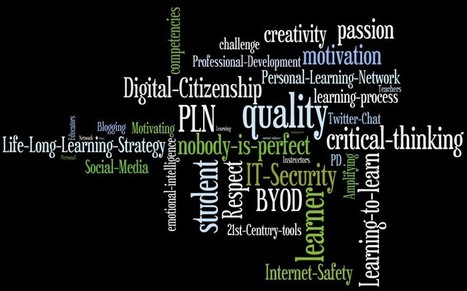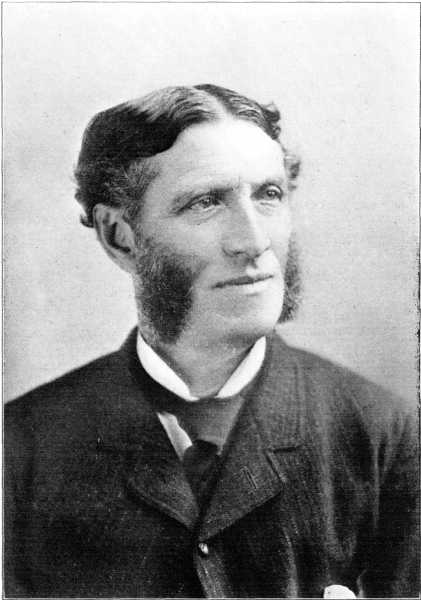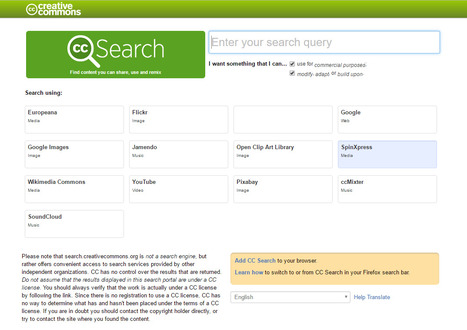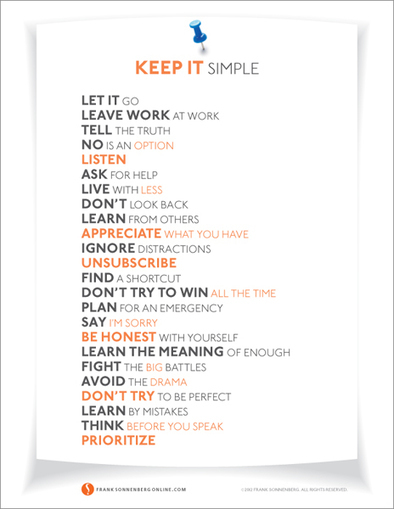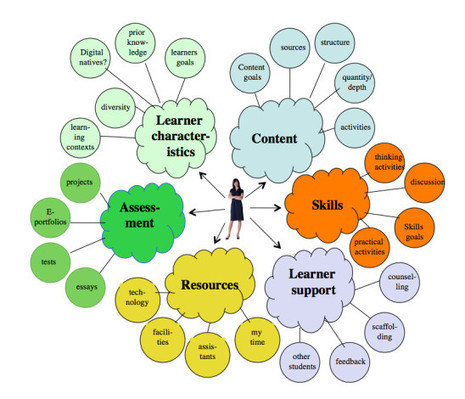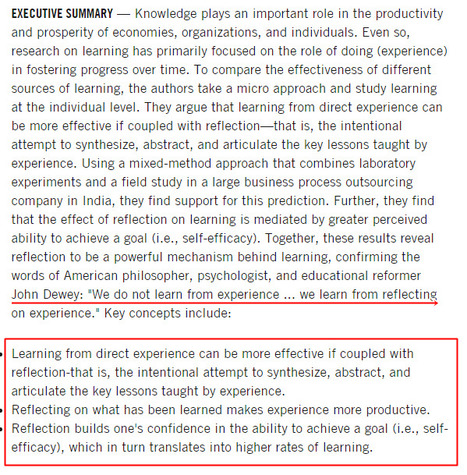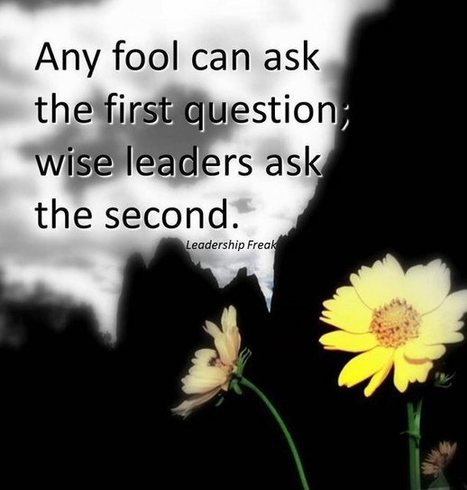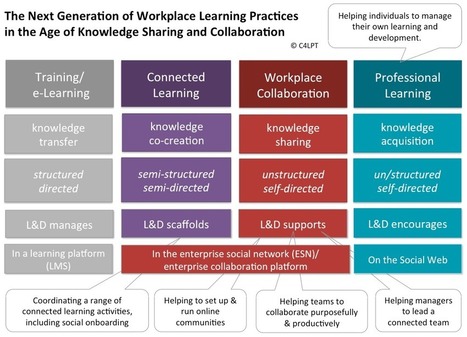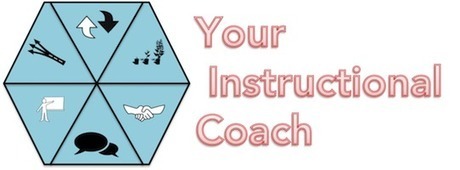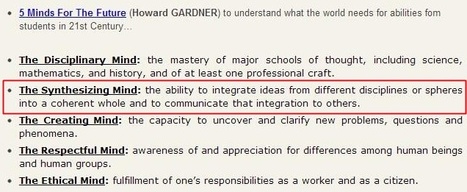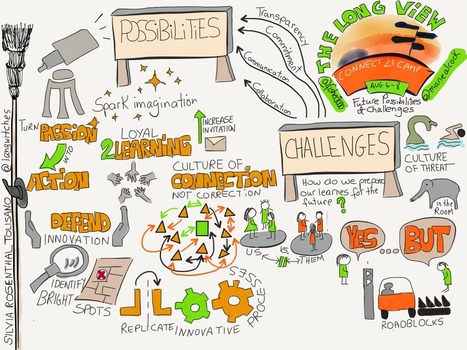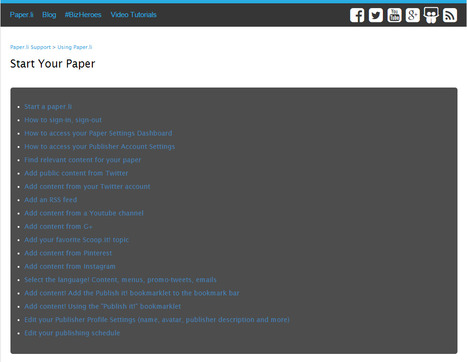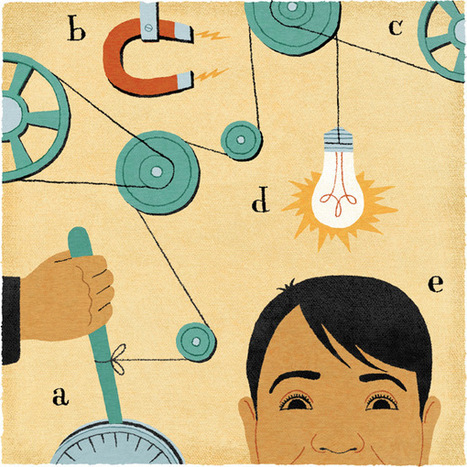 Your new post is loading...
 Your new post is loading...
SO, you are a retired EDUcator, TEACHer, Instructor, LEHRENDER: WHAT to do NOW?!! Well, that was the question I was asking myself when I became retired in 2014. As I did innovation in Modern-EDUcation in my country Luxembourg, there was NO WAY to give that up, BTW! SO, years before my retirement I… Learn more / En savoir plus / Mehr erfahren: https://gustmees.wordpress.com/
Via Gust MEES
There’s an epidemic sweeping through the content writing industry. People are spending more time curating other people’s content than crafting their own original pieces. In a world where it’s easy to simply grab something from someone else and share it with your audience, you may be falling prey to this dangerous trend.
You may assume that convenience is the primary issue; however, a lack of confidence may be to blame.
How a lack of confidence hurts your writing
Confidence is a fickle thing. One minute, you can have all the confidence in the world and the next moment it’s gone. There are so many different factors in play and the average person has a pretty poor outlook on their potential.
“Often people think of confidence as something that the lucky few are born with and the rest are left wishing for. Not true,” business consultant Margie Warrell assures people. “Confidence is not a fixed attribute; it’s the outcome of the thoughts we think and the actions we take. No more; no less. It is not based on your actual ability to succeed at a task but your belief in your ability to succeed.”
When you look at writing, in particular, this means confidence isn’t tied to your talent as a writer, but in your belief that you can be successful. Once you look at it through this lens, it becomes apparent that a lack of confidence can have a tremendously negative impact on your efforts. Learn more / En savoir plus / Mehr erfahren: https://gustmees.wordpress.com/?s=blogs https://gustmees.wordpress.com/?s=curation
Via Gust MEES
Off the paths it is almost impossible to find anything – unless you know what you’re looking for – so it feels a bit like a treasure hunt. Because really the only way to find anything in this vast forest is to be told where to look. This is how the dark web works – and it is essentially the name given to all the hidden places on the internet.
Just like the forest, the dark web hides things well – it hides actions and it hides identities. The dark web also prevents people from knowing who you are, what you are doing and where you are doing it. It is not surprising, then, that the dark web is often used for illegal activity and that it is hard to police. Learn more / En savoir plus / Mehr erfahren: http://www.scoop.it/t/21st-century-learning-and-teaching/?&tag=Darknet http://www.scoop.it/t/securite-pc-et-internet/?&tag=darknet
Via Gust MEES
In the fields of philosophy and æsthetics, the derogatory term philistinism describes the social attitude of anti-intellectualism that undervalues and despises art, beauty, spirituality, and intellect; "the manners, habits, and character, or mode of thinking of a philistine".
In the fields of philosophy and æsthetics, the derogatory term philistinism describes the social attitude of anti-intellectualism that undervalues and despises art, beauty, spirituality, and intellect; "the manners, habits, and character, or mode of thinking of a philistine".[1] A philistine person is a man or woman of smugly narrow mind and of conventional morality whose materialistic views and tastes indicate a lack of and an indifference to cultural and æsthetic values.[2] Learn more / En savoir plus / Mehr erfahren: http://www.scoop.it/t/21st-century-learning-and-teaching/?&tag=Character
Via Gust MEES
Creative Commons licenses provide a flexible range of protections and freedoms for authors, artists, and educators. Please note that search.creativecommons.org is not a search engine, but rather offers convenient access to search services provided by other independent organizations. CC has no control over the results that are returned. Do not assume that the results displayed in this search portal are under a CC license. You should always verify that the work is actually under a CC license by following the link. Since there is no registration to use a CC license, CC has no way to determine what has and hasn't been placed under the terms of a CC license. If you are in doubt you should contact the copyright holder directly, or try to contact the site where you found the content. Learn more / En savoir plus / Mehr erfahren: http://www.scoop.it/t/21st-century-learning-and-teaching/?tag=Creative-Commons https://gustmees.wordpress.com/2013/02/22/what-you-should-know-about-copyright/
Via Gust MEES
9. Inspiration Put it all together, and what emerges is a picture of the truly inspiring leader: someone who communicates clearly, concisely, and often, and by doing so motivates everyone to give his or her best all the time. They challenge their people by setting high but attainable standards and expectations, and then giving them the support, tools, training, and latitude to pursue those goals and become the best employees they can possibly be. Learn more / En savoir plus / Mehr erfahren: http://www.scoop.it/t/21st-century-learning-and-teaching/?tag=LeaderShip
Via Gust MEES
5 reasons we stop with first questions: Image protection. We don’t want to look like we have something to learn.Time pressure. We don’t have time to gain wisdom.Curiosity deficit. We just aren’t curious.Respect shortage. The person talking is “below” us. They’re younger, less successful, or less experienced.Self importance. Big headitis destroys leaders. No one makes you wise. Learn more: - http://www.scoop.it/t/21st-century-learning-and-teaching/?tag=LeaderShip
Via Gust MEES
Business is full of dry, boring material that needs your attention. Here, Inc. columnists share ways to get through the drudgery.
Via Gust MEES
|
Kuhn's idea was, itself, revolutionary in its time. It caused a major change in the way that academics talk about science; and, so, it may be that it caused (or was part of) a "paradigm shift" in the history and sociology of science. However, Kuhn would not recognize such a paradigm shift.
A common but confusing way of distinguishing between efficiency and effectiveness is the saying "Efficiency is doing things right, while effectiveness is doing the right things." This saying indirectly emphasizes that the selection of objectives of a production process is just as important as the quality of that process.
Efficiency is very often confused with effectiveness. In general, efficiency is a measurable concept, quantitatively determined by the ratio of useful output to total input. Effectiveness is the simpler concept of being able to achieve a desired result, which can be expressed quantitatively but doesn't usually require more complicated mathematics than addition. Efficiency can often be expressed as a percentage of the result that could ideally be expected, for example if no energy were lost due to friction or other causes, in which case 100% of fuel or other input would be used to produce the desired result. This does not always apply, not even in all cases in which efficiency can be assigned a numerical value, e.g. not for specific impulse. Learn more / En savoir plus / Mehr erfahren: http://www.scoop.it/t/21st-century-learning-and-teaching/?&tag=efficient+competitive+intelligence
Via Gust MEES
Teaching students good learning strategies would ensure that they know how to acquire new knowledge, which leads to improved learning outcomes, writes lead author Helen Askell-Williams of Flinders University in Adelaide, Australia. And studies bear this out. Askell-Williams cites as one example a recent finding by PISA, the Programme for International Student Assessment, which administers academic proficiency tests to students around the globe, and place American students in the mediocre middle. “Students who use appropriate strategies to understand and remember what they read, such as underlining important parts of the texts or discussing what they read with other people, perform at least 73 points higher in the PISA assessment—that is, one full proficiency level or nearly two full school years—than students who use these strategies the least,” the PISA report reads. Learn more / En savoir plus / Mehr erfahren: https://gustmees.wordpress.com/2014/10/03/design-the-learning-of-your-learners-students-ideas/ https://gustmees.wordpress.com/2015/07/19/learning-path-for-professional-21st-century-learning-by-ict-practice/
Via Gust MEES
The platform. Unparalleled power. Paper.li gives you access to an ever-expanding universe of articles, blog posts, and rich media content. We automatically process more than 250 million social media posts each day, extracting & analyzing over 25 million articles. Only Paper.li lets you tap into this powerful media flow to find exactly what you need, and publish it easily on the web and in social media. Learn more about Paper.li: - https://paper.li/learn-more.html
Via Gust MEES
Psychology offers several explanations. For instance, we know that the brain responds better to spaced practice than it does to cramming (at least in the long term), forced recall instead of review (quizzing yourself rather than re-reading material), and associative rather than isolated memorization (e.g. mneumonics).
We also know that people who think about their own learning, make a habit of asking questions, use what they’ve learned, teach what they’ve learned to others, and enjoy the learning process on an intrinsic level all become better learners.
The good news is, these are all strategies and habits that can be adopted through practice. Why some of us master them earlier than others is another topic, one that may have something to do with parenting, environment, and even genetics. But the point is, we’re all capable. The smartest, most successful people in the world wouldn’t be where they are today if they weren’t skilled learners. So let’s examine which strategies we should be perfecting and how they can serve us in the long run.
What Do Skilled Learners Do Differently? 1. Skilled learners think about their own learning. 2. Skilled learners ask more questions. 3. Skilled learners are process-oriented. 4. Skilled learners can often find their own way, without guidance. 5. Skilled learners always keep the big picture in mind. 6. Skilled learners frequently try new things. . . . 25. Skilled learners gather information from a variety of sources.
Via Gust MEES
|



 Your new post is loading...
Your new post is loading...

